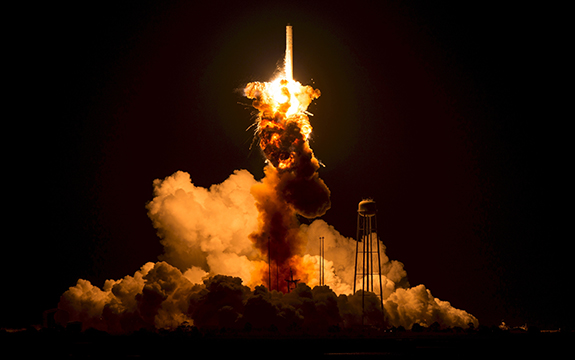Unique Swinburne short courses offer skills for the space industry

In Summary
- Swinburne has two new short courses to equip people to work in and with evolving space industries in Australia and internationally
- The courses are unique in Australia, and provide skills and knowledge to begin, or advance, a career in the space industry
- The courses will be delivered by Swinburne’s Centre for Astrophysics and Supercomputing, the largest astronomical research group in Victoria
To meet the needs of growing space industries in Australia and globally, Swinburne is launching two unique short courses in August.
Swinburne’s new six-week micro units are aimed at researchers, consultants, entrepreneurs and legal professionals looking to work in and with these fast-growing space industries.
New space micro units
The ‘Space Applications in the Australian Context’ micro unit will help researchers and entrepreneurs navigate the complexities of the domestic and international space industries’ ecosystem. Experts will guide participants through the current and potential applications and capabilities of Australia’s space industry, as well as the fundamentals of operating in a space environment.
The ‘Space Regulatory Frameworks’ micro unit focuses on the key legislation, agreements, treaties and conventions that govern domestic and international space operations.
Developing necessary skills and knowledge
Senior Lecturer in Space Research, Governance and Law, Kim Ellis, says the micro units provide a comprehensive overview for those wishing to take advantage of opportunities in the space industries.
“The micro units are the first-of-their-kind in Australia and provide the necessary skills and knowledge to begin, or level-up, your career in the space industry, regardless of your current field. That includes understanding the unique challenges that are faced by Australian space industry entrepreneurs, researchers or lawyers trying to navigate new space rules and regulations,” she says.
Swinburne is fast becoming a leader in space and the global space industries. In April, Swinburne was announced as a key player in the new Cooperative Research Centre for Smart Satellite Technologies and Analytics – the biggest investment in space industry research and development in Australia’s history.
Dean of Science, Professor Virginia Kilborn, says the micro units are a natural next step for Swinburne and will equip Australians with skills and knowledge to be at the forefront of the international space industry.
“The global space economy is only going to get bigger. Opportunities include artificial intelligence, robotics, big data analytics and next-generation communications to enable broadband space-to-earth communication, as well as innovation in antenna, rocket and spacecraft systems,” she says.
The micro units will be mostly delivered online, and include a one-day intensive and networking event. Combining online delivery with an in-person workshop allows participants to access flexible learning, find their niche and grow their network with leading industry players.
Find out how Swinburne can equip you to work in the space industry: http://www.swinburne.edu.au/space-technology/

